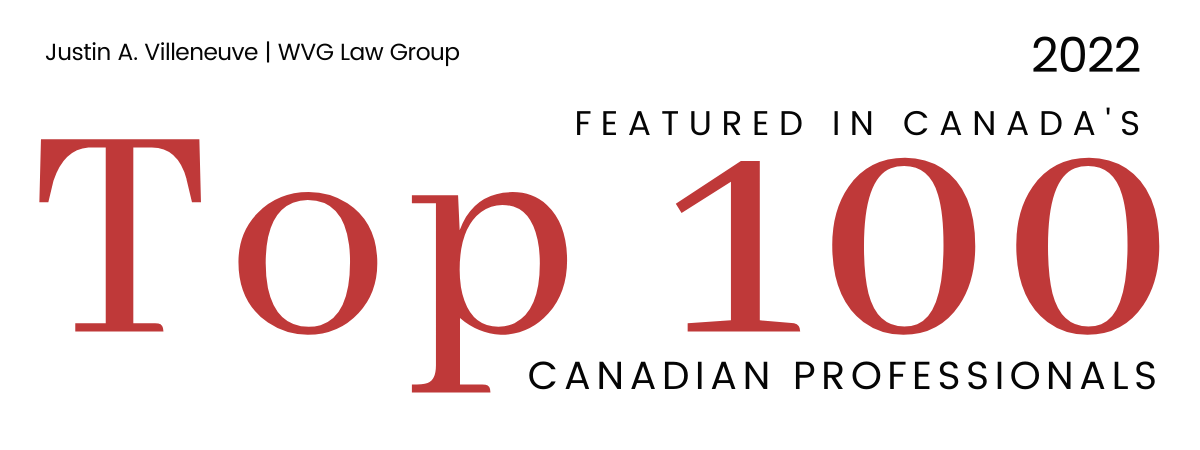Let's talk about your case
You can schedule a call with one of our lawyers anytime. Call today and get the help you need.
Or fill out our online form, and we will respond within 24 hrs.
Ontario School Boards Sue Facebook: Legal Battle Unfolds
Legal Battle Unfolds: Ontario School Boards Sue Facebook

Key Highlights
- Four major Ontario school boards are taking Facebook, Instagram, Snapchat, and TikTok to court, alleging that these social media platforms are harming students and disrupting the education system.
- The school boards are seeking a total of $4.5 billion in damages from Meta Platforms Inc., Snap Inc., and ByteDance Ltd., the companies that own these social media platforms.
- The allegations include claims that the platforms are addictive, promote cyberbullying and hate speech and expose students to harmful content related to self-harm, drugs, and non-consensual sexual activity.
- Similar lawsuits have been filed by school boards in the United States, highlighting the growing concern about the impact of social media on students.
- Ontario Premier Doug Ford disagrees with the lawsuits, calling them "nonsense" and questioning the allocation of resources towards the legal battle instead of focusing on the well-being of students.
Introduction
Four major school boards in Ontario have filed a lawsuit against Facebook, Instagram, Snapchat, and TikTok, alleging that these social media platforms are harming students and disrupting the education system. The school boards, which include the public district school boards of Toronto, Peel, and Ottawa-Carleton, along with Toronto's Catholic counterpart, are seeking a total of $4.5 billion in damages from the companies that own these platforms. The lawsuit claims that these social media giants have knowingly created addictive products that are marketed to children, leading to a range of negative effects on the student population, including their well-being and their ability to learn. This lawsuit highlights the growing concern over the impact of social media on student learning and the education system as a whole, including the potential for risky behaviour encouraged by viral challenges, as stated in a news release by the school boards on Thursday.
The lawsuit filed by Ontario school boards is part of a growing trend of legal battles against social media companies around the world. School boards in the United States have also filed similar lawsuits, highlighting the concern about the impact of social media on students' mental health and academic performance. However, at an unrelated news conference in Ottawa, Ontario Premier Doug Ford expressed his disagreement with the lawsuits, calling them "nonsense" and questioning the allocation of resources towards the legal battle instead of focusing on the well-being of students and the massive strains it has caused on the education system. The lawsuits were filed in Ontario's Superior Court, showing the seriousness of the issue and the determination of the school boards to hold Facebook accountable for their actions. This includes four separate but similar statements of claim filed in Ontario's Superior Court of Justice by the Toronto District School Board, the Peel District School Board, the Toronto Catholic District School Board, and the Ottawa Carleton District School Board.
The Origins of the Legal Battle Against Social Media Giants
The legal battle between Ontario school boards and social media giants Facebook, Instagram, Snapchat, and TikTok has its origins in the growing concern about the impact of social media on students' well-being and academic performance. School boards have observed a range of negative effects, including addiction, cyberbullying, exposure to harmful content, and a decline in academic performance. As a result, school boards in Ontario have decided to take legal action against these social media giants to hold them accountable for the harm caused to students and the disruption of the education system.

Overview of the Lawsuit Filed by Ontario School Boards
The lawsuit filed by the Ontario school boards alleges that Facebook, Instagram, Snapchat, and TikTok have knowingly created addictive products that are marketed to young people, causing harm to their well-being and disrupting the education system. The school boards are seeking a total of $4.5 billion in damages from Meta Platforms Inc., Snap Inc., and ByteDance Ltd., the companies that own these social media platforms. This lawsuit claims that these platforms have rewired the way young people think, behave, and learn, leading to an attention, learning, and mental health crisis among students due to their compulsive use of social media products.
The lawsuit claims that these platforms facilitate and promote cyberbullying, hate speech, and misinformation, which have led to an increase in physical violence and conflicts in schools. Additionally, the platforms are accused of delivering harmful content related to topics such as self-harm, drugs, and non-consensual sexual activity to students. The school boards argue that the design and algorithms of these platforms contribute to the compulsive use and addiction among students, leading to a range of negative consequences.
Key Allegations Against Facebook and Other Platforms
The lawsuit filed by the Ontario school boards makes several key allegations against Facebook, Instagram, Snapchat, and TikTok. These allegations include:
- Knowingly creating addictive products that are marketed to children
- Facilitating and promoting cyberbullying, hate speech, and misinformation
- Delivering harmful content related to self-harm, drugs, and non-consensual sexual activity to students
- Contributing to an increase in physical violence and conflicts in schools
The school boards argue that these actions by the social media platforms have had a detrimental impact on students' well-being, academic performance, and the overall functioning of the education system. The allegations also stress the need for social media companies to be held accountable for the potential harm caused by their platforms and the importance of creating safer online environments for students. A successful outcome in this lawsuit would not only hold these companies responsible, but also ensure the protection of students and the education system as a whole.
Impact of Social Media on Students: What the Research Says

Numerous studies have investigated the impact of social media on students, highlighting both the positive and negative effects. While social media platforms provide opportunities for communication, self-expression, and access to information, they also pose risks to students' well-being and academic performance. Research has shown that excessive use of social media can contribute to addiction, sleep disturbances, decreased academic performance, cyberbullying, and mental health concerns such as anxiety and depression. The lawsuit filed by Ontario school boards reflects the growing concern about the negative impact of social media on students and the need for social media companies to take responsibility for the potential harm caused by their platforms.
Academic Performance and Mental Health Concerns
The impact of social media on students' academic performance and mental health has been a subject of research and concern. Studies have shown that excessive use of social media can lead to distractions, decreased focus, and reduced academic performance. Students may spend more time on social media platforms instead of engaging in productive activities such as studying or participating in extracurricular activities. Additionally, social media can contribute to mental health concerns such as anxiety and depression, as students are exposed to the pressure of comparing themselves with others and facing cyberbullying. The allegations made by Ontario school boards, including TDSB, against Facebook and other platforms highlight the need for social media companies to address these concerns and create safer online environments for students.
Cyberbullying and Its Consequences in School Environments
Cyberbullying has become a significant concern in school environments, with social media platforms playing a role in facilitating and perpetuating such behavior. The lawsuit filed by Ontario school boards accuses Facebook, Instagram, Snapchat, and TikTok of promoting and enabling cyberbullying among students. Cyberbullying can have severe consequences on students' well-being, leading to increased levels of stress, anxiety, and depression. It can also negatively impact students' academic performance and their ability to feel safe and supported in the school environment. The allegations made by the school boards emphasize the need for social media companies to take proactive measures to prevent and address cyberbullying, ensuring a safer online environment for students.
Legal Precedents and the Path to the Courtroom
The lawsuit filed by Ontario school boards against Facebook, Instagram, Snapchat, and TikTok is not the first legal battle against social media giants. In the United States, hundreds of school boards and states have also filed similar lawsuits, alleging harm caused by these platforms. These lawsuits highlight the growing recognition of the need to address the negative impact of social media on students' well-being and the functioning of educational institutions. The path to the courtroom involves gathering evidence, filing the claim, and proceeding through the legal process to determine the outcome of the case. The Ontario school boards' lawsuit adds to the legal precedents and contributes to the ongoing discussion about the responsibilities of social media giants in ensuring the safety and well-being of students.
Similar Cases Around the Globe
The lawsuit filed by Ontario school boards against Facebook, Instagram, Snapchat, and TikTok is part of a global trend of legal battles against social media companies. School boards and educational institutions around the world have raised concerns about the impact of social media on students' well-being and academic performance. Similar lawsuits have been filed in the United States, Canada, and other countries, with experts such as Duncan Embury, a partner and head of litigation at Neinstein, highlighting the responsibility of these companies in ensuring the safety of their users. These cases reflect a growing recognition of the need to address the negative consequences of excessive social media use and to hold social media companies accountable for the potential harm caused by their platforms. The global perspective on these issues highlights the importance of creating safer online environments for students and the ongoing discussions surrounding the responsibilities of traditional social media giants in ensuring the well-being of their users.

Potential Challenges in the Legal Process
The legal process involved in the lawsuit filed by Ontario school boards against Facebook, Instagram, Snapchat, and TikTok is likely to face several challenges. Social media companies may employ various legal strategies to defend themselves against the allegations made by the school boards. These challenges may include questioning the causality between the use of their platforms and the alleged harm, disputing the responsibility of the companies for the actions of their users, and raising concerns about the potential limitations of regulating online content. The outcome of the legal process will depend on the strength of the evidence presented by the school boards and the legal arguments put forth by the social media companies. These challenges highlight the complexity of addressing the impact of social media on students and the need for a comprehensive approach that involves collaboration between educational institutions, government bodies, and social media companies.
Responses from the Accused: Facebook and Other Defendants
Facebook, Instagram, Snapchat, and TikTok, the defendants in the lawsuit filed by Ontario school boards, have not yet responded publicly to the allegations. It is expected that the social media companies will employ legal strategies to defend themselves against the claims made by the school boards. These defenses may include challenging the causality between the use of their platforms and the alleged harm, emphasizing the role of user responsibility, and highlighting the measures already in place to address the safety and well-being of their users. The responses from the defendants will be crucial in shaping the legal proceedings and determining the outcome of the case.
Official Statements from Social Media Companies
As of now, there have been no official statements from Facebook, Instagram, or TikTok in response to the lawsuit filed by Ontario school boards. However, it is expected that the social media companies will issue official statements to address the allegations made against them, possibly through a spokesperson. These statements may include defenses that highlight the measures already in place to ensure the safety and well-being of their users, the challenges of regulating user-generated content, and the importance of user responsibility in navigating social media platforms. The role Snapchat plays in helping close friends feel connected and happy may also be mentioned in the official statements, as it differs from the other platforms in its lack of traditional public likes and comments.
The official statements from the social media companies, which may be sent via email or posted on their respective platforms, will contribute to the ongoing legal proceedings and shape the discourse surrounding the responsibilities of these platforms in safeguarding the well-being of students. Additionally, the statements may address the importance of promoting a positive feed of content and creating a safe and supportive online community for young users.
The Argument for User Responsibility and Parental Control
One of the defenses that may be raised by social media companies is the argument for user responsibility and parental control. They may argue that it is ultimately the responsibility of users, including students, to make informed choices about their social media usage and to exercise caution in navigating these platforms. Additionally, social media companies may emphasize the importance of parental control and involvement in monitoring and guiding their children's online activities. The argument for user responsibility and parental control acknowledges the shared responsibility in creating a safe online environment for students, while also highlighting the challenges of regulating social media platforms and the need for collaboration between educational institutions, government bodies, and families.
Community and Educator Reactions to the Lawsuit
The lawsuit filed by Ontario school boards against Facebook, Instagram, Snapchat, and TikTok has sparked various reactions from the community and educators. Some parents and educators have expressed support for the legal action, believing that social media platforms have a responsibility to protect students from harmful content and promote safer online environments. They believe that the lawsuit, led by Duncan Embury of Neinstein LLP, will highlight the impact of social media on students' well-being and academic performance and push for necessary changes in the design and regulation of these platforms.
However, there are also critics who question the effectiveness of legal action and advocate for a more comprehensive approach that involves education, parental guidance, and cooperation between stakeholders to address the negative impact of social media on students. Traditional public likes and comments on social media platforms have been linked to negative effects on mental health, particularly for adolescents. This lawsuit may bring attention to the need for alternative ways of measuring popularity and engagement on social media that do not contribute to these harmful effects.

Support from Parents and Teachers
The lawsuit filed by Ontario school boards against Facebook, Instagram, Snapchat, and TikTok has received support from parents and teachers who are concerned about the negative impact of social media on students. These supporters believe that social media companies have a responsibility to create safer online environments and protect students from harmful content, cyberbullying, and other negative consequences associated with excessive social media use. They see the lawsuit as an opportunity to hold these companies accountable and push for necessary changes in the design and regulation of social media platforms, especially for the well-being of close friends and the challenges of adolescence. The support from parents and teachers highlights the growing recognition of the need to address the impact of social media on students' well-being and academic performance.
Criticism and Concerns about the Effectiveness of Legal Action
While the lawsuit filed by Ontario school boards has received support from some parents and teachers, there are also critics who question the effectiveness of legal action in addressing the negative impact of social media apps on students. These critics argue that the focus should be on education, parental guidance, and promoting responsible social media usage rather than relying solely on legal measures. They raise concerns about the potential limitations of regulating online content and the challenges of holding massive companies like Facebook accountable for the actions of their users who have endless cash to fight legal battles. The criticism and concerns about the effectiveness of legal action and the need for a comprehensive approach that involves collaboration between educational institutions, government bodies, and social media companies highlight the importance of addressing the issue of excessive screen time in a multifaceted manner.
Conclusion
In conclusion, the lawsuit filed by Ontario School Boards against social media giants like Facebook sheds light on the critical impact of social media on students' academic performance and mental health. Cyberbullying and related consequences in educational settings have prompted legal action. As responses from the accused are awaited, community and educator reactions vary, emphasizing the need for user responsibility and parental control in navigating online platforms. This legal battle not only aims to address current concerns but also has the potential to set a precedent for future actions against social media companies, highlighting the role of government regulation in safeguarding online environments for students.
Frequently Asked Questions
Why have Ontario School Boards Decided to Sue Social Media Platforms?
Ontario school boards have decided to sue social media platforms like Facebook, Instagram, Snapchat, and TikTok to hold them accountable for the alleged harm caused to students' well-being and the disruption of the education system. The decision to take legal action is driven by the concern about the negative impact of social media on students and the need to create safer online environments.
What Are the Main Harmful Effects of Social Media Cited in the Lawsuit?
The lawsuit filed by Ontario school boards cites several harmful effects of social media, including addiction, cyberbullying, exposure to harmful content related to self-harm and drugs, and negative impacts on students' mental health and academic performance. These harmful effects are central to the allegations made against social media platforms.
How Can Parents and Educators Mitigate the Negative Impact of Social Media?
Parents and educators can mitigate the negative impact of social media by promoting responsible social media usage, educating students about online safety and digital citizenship, and encouraging open communication about their online experiences. Active parental involvement and guidance, along with collaboration between parents, educators, and students, can help create a safer and healthier online environment for students.
What Are the Potential Outcomes of the Lawsuit?
The potential outcomes of the lawsuit filed by Ontario school boards against social media companies include holding the companies accountable for the alleged harm caused to students, raising awareness about the negative impact of social media on students' well-being, and pushing for necessary changes in the design and regulation of social media platforms. The lawsuit may also set legal precedents that could influence future legal actions against social media companies.
Can This Lawsuit Set a Precedent for Future Legal Actions Against Social Media Companies?
The lawsuit filed by Ontario school boards against social media companies has the potential to set a precedent for future legal actions against these companies. The outcome of the lawsuit and the arguments presented by the school boards may influence similar cases around the world and contribute to the ongoing discussions about the responsibilities of social media companies in ensuring the safety and well-being of their users.
How Are Social Media Platforms Defending Themselves Against These Allegations?
Social media platforms are expected to employ various legal strategies to defend themselves against the allegations made by Ontario school boards. These strategies may include challenging the causality between the use of their platforms and the alleged harm, emphasizing user responsibility, and highlighting the measures already in place to address the safety and well-being of their users.
What Role Can Government Regulation Play in Addressing These Concerns?
Government regulation can play a crucial role in addressing the concerns raised by Ontario school boards and other stakeholders regarding the negative impact of social media on students. Government bodies can introduce regulations and guidelines to hold social media companies accountable for the content on their platforms and to ensure the safety and well-being of users, particularly children and adolescents.
Is There a Possibility for an Out-of-Court Settlement?
There is a possibility for an out-of-court settlement in the lawsuit filed by Ontario school boards against social media companies. Out-of-court settlements are common in legal disputes and may be reached if both parties agree on a resolution that addresses the concerns raised in the lawsuit, without the need for a lengthy and costly legal process.
RESOURCES
https://web.archive.org/web/20210126084919/https://www.bbc.co.uk/news/technology-51561050
Let's talk about your case
You can schedule a call with one of our lawyers anytime. Call today and get the help you need.
Or fill out our online form, and we will respond within 24 hrs.
Thank you for contacting us.
We will get back to you as soon as possible. You can also book using this link: Personal Injury Booking Page
Please try again later
Related Blog Posts
Practice Areas
QUICK LINKS
CONTACT US
Tel: (613) 505- 5025
Fax: (613) 234-5852
info@wvgblaw.com
200-2571 Carling Avenue
Ottawa, Ontario
K2B 7H7
SERVICES
RECENT BLOG POSTS














